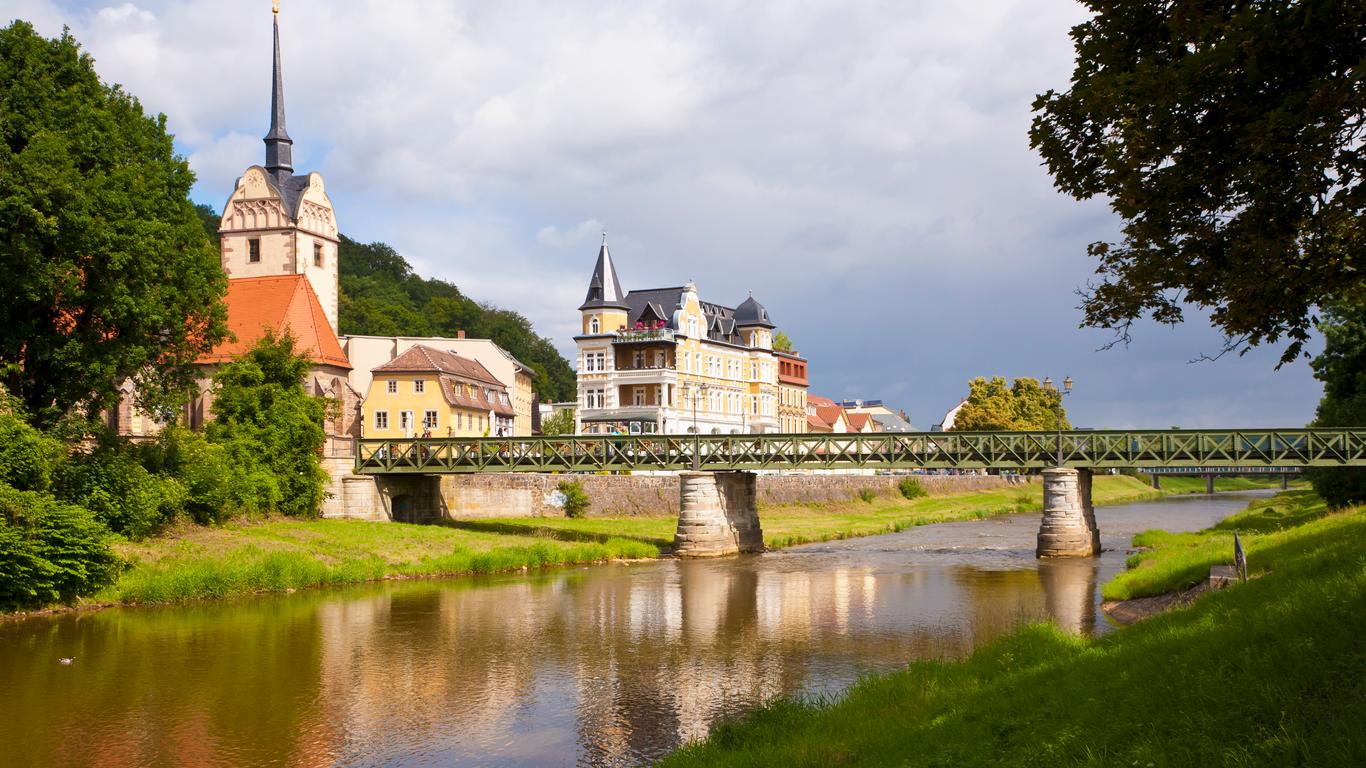Located in the heart of Germany, Thuringia is a fascinating state that gave birth to Johann Sebastian Bach, Johann Wolfgang von Goethe and Friedrich Schiller. It was established in 1920 as part of the Weimar Republic before being occupied by the Soviets in the wake of World War II. Following German reunification in 1990, Thuringia was re-established as a state.
Things to do in Thuringia
With spectacular natural landscapes and an abundance of historical sites, Thuringia is one of Germany’s hidden gems.
Explore medieval Erfurt. Serving as the capital of Thuringia, Erfurt centres around one of the most intact medieval towns in Germany. Admire the half-timbered houses that line the Merchants’ Bridge and see the Gothic-style St. Mary’s Cathedral, which was where Martin Luther was ordained in 1507. A short walk away is the Augustinian Monastery where the father of the Protestant Reformation lived as a monk. History buffs shouldn’t miss a visit to the Petersberg Citadel, which is one of the best-preserved town fortresses in Europe.
Visit Wartburg Castle. Rising atop a precipice overlooking the town of Eisenach is Wartburg Castle, which was where Martin Luther translated the New Testament into German. Listed as a UNESCO World Heritage Site, the complex centres around a Romanesque-style palas, which is beautifully decorated with frescoes. Join a guided tour to learn about the influential individuals who sought refuge here and admire the castle’s exceptional art collection.
Discover Weimar’s literary links. Home to legendary authors, poets and playwrights, Weimar played an influential role in the German Enlightenment. A monument depicting Goethe and Schiller stands proudly in front of the Deutsche Nationaltheater while Goethe’s Baroque residence has been transformed into a museum dedicated to his life and work. Adjacent to Schiller’s former residence is the Schiller Museum where changing exhibitions are held.
Getting around Thuringia
Leipzig-Halle Airport is one of the main aviation gateways to Thuringia and has flights to destinations across Europe. Trains connect major towns and cities throughout the state while buses serve smaller villages. Renting a car will give you greater freedom to explore the region.





